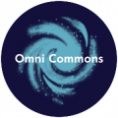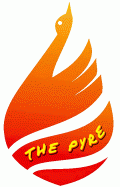Perhaps it’s but a personality trait, but I find myself decidedly undecided, residing in a constant state of indecision. For better or worse, I turn to the steady hum of the interweb for inspiration. Going out to dinner entails a lengthy perusal of online reviews (three cheers for yelp!). My life decisions, beginning most memorably with the college search since the advent of high school, are group decisions. This is not to say people have not always been composed of their collective interactions (read: culture), but that this process is occurring in new ways that have yet to be understood and categorically ordered into consciousness.
For as much as we are conduits of culture, we are also its composers. Being as it is the dawn of a new era of mediated communication, we are in prime position to create new memes for future generations. This is imperative, for as anyone tapped into the collective neural net knows (and that’s everybody, to varying forms and degrees), the world is in a deep malaise that, while it may never be undone, must be remade. Degunk the junk and foster the funk.
Through the mirror, darkly sinister forms abound. The websites I have been researching glamorize “stupid spoiled whores,” revel in misanthropy, and celebrate self-mutilation. This is the ugly underbelly of a jaded generation, saturated with the soulless machine of a media industry gone mad. Eventually, one would imagine, we will reach satiation and revolt against this funhouse mirror of our society. That is to say, we may and must remake the mirror.
Here we stand, poised at the precipice of a new era of information flow. The simple existence of these websites is telling: with the ever-evolving tools of the interweb, the ever-increasing population of the digitized can join the conversation. Little surprise it is that we converse online in the same way we converse offline: we gossip about others, consume media and talk about it, create representations of ourselves through performative acts, confess our darkest secrets and innermost longings in the sanctuary of like-minded others…
And, like in life, some clamber for soapboxes where they may espouse prolifically to a mostly unseen (but potentially vast) audience, while many lurk about, not wishing to be heard but willing to absorb. Though most of us be sheep, theories regarding the wisdom of the crowd contend that diluting and diversifying such a crowd will increase the chances of its survival.
In order to survive, we need to be critical producers of alternative points of view. This post was originally inspired by the research I’m conducting on pro-self harm websites; having sussed out the black-and-white, the extremes, I’ve moved on to the nuanced middle ground. In this space that is neither supportive of self-destruction nor condemning of such a perspective, there are emerging voices that seek to not only reflexively examine the issue as it stands, but to redefine the very definition of “pro-self harm.” Not supportive of the disordered habits that are the coping mechanisms for our culture, but supportive of those who are clearly in need of support most of all. Effective support entails not only empathy and understanding, but strong voices (herders, if you will) with the capacity to critique our disorderly conduct and call new memes into being. So clamber on up, to the top of the search results, redefine the folksonomy, and remake that mirror (repetition numero tres).
Consider this a call to action.
Some inspiration:
mamaVISION: Highly controversial (read: popular) personal blog of a 30-something ex-model turned mother, dedicated to spreading awareness of our eating disordered society and empathetically communicating with the sufferers themselves.
We Bite Back: Post-pro-ana – Postmodernizing the discussion of eating disorders and encouraging recovery.
Suicide: Read This First: Another form of “pro-suicide”- offering empathetic understanding and resources.
Self-Injury: A Struggle: Longstanding site devoted to spreading awareness and cultivating a community of support for self-injurers, created by a fellow self-injurer.




